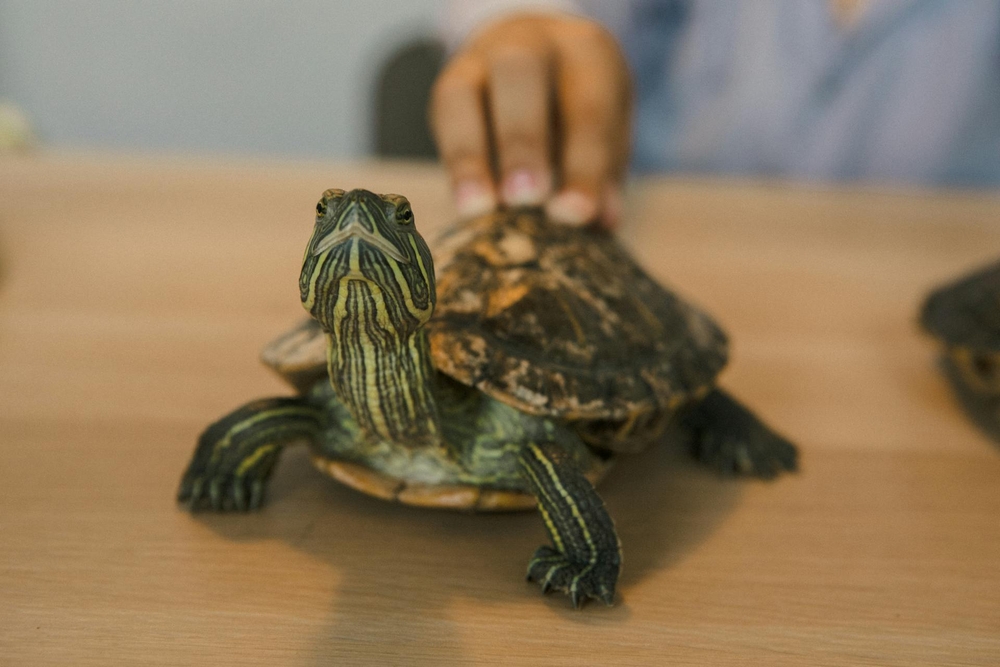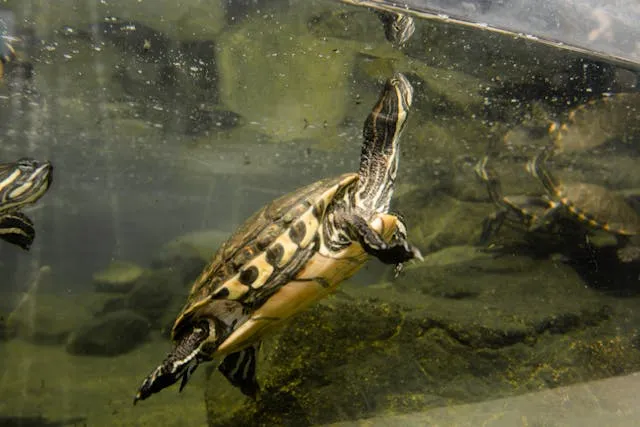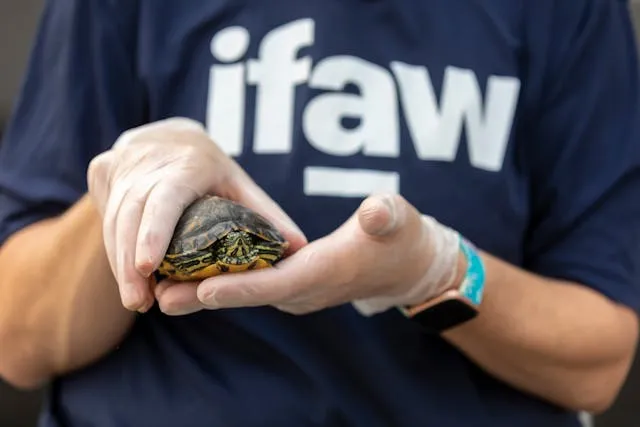Published
- 4 min read
My Tortoise Won’t Eat: Common Causes and Practical Solutions

When a tortoise stops eating, it is normal for owners to worry. Loss of appetite in these reptiles can indicate various issues, from changes in their environment to more serious health problems. In this post, we will explore the most common reasons why a tortoise might refuse to eat and provide practical solutions to help your pet regain its appetite.
Inadequate Environment
One of the most common factors affecting a tortoise’s appetite is its environment. Turtles are sensitive to their habitat, and any changes in conditions can cause stress and make them stop eating.
Check the following:
Temperature: Turtles are ectothermic animals, meaning they rely on environmental temperature to regulate their metabolism. If the water or terrarium temperature is too low, your tortoise may become lethargic and lose its appetite. Ensure a proper temperature, typically between 24-28°C for aquatic turtles and a basking area of 30-32°C.
Lighting: Lack of adequate UVB light can affect your tortoise’s ability to metabolize calcium, leading to health issues and loss of appetite. Ensure your tortoise has access to a UVB light source for at least 10-12 hours a day.
Water Quality: For aquatic turtles, dirty water or high chlorine levels can cause stress and even illness. Change the water regularly and use an appropriate filter to keep it clean.

Tortoise swimming in aquarium.
Stress or Changes in Routine
Turtles are creatures of habit, and any change in their daily routine or environment can cause stress, leading to loss of appetite.
Possible sources of stress:
Recent move or habitat change: If you have moved your tortoise or provided a new habitat, it may need time to adjust.
Excessive noise or activity in their environment: Turtles prefer quiet environments. If their terrarium is in a noisy or high-traffic area, they might feel threatened and stressed.
Introduction of new companions: If you have added another tortoise or pet to the environment, this might be causing stress to your tortoise.
Diseases and Health Problems
If your tortoise has stopped eating for several days, it could be a sign of an underlying health issue.
Common problems affecting appetite:
Respiratory infections: Respiratory infections are common in turtles and can cause loss of appetite. Signs include difficulty breathing, mucus in the nose or mouth, and lethargy.
Parasites: Internal parasite infestations can cause gastrointestinal discomfort and loss of appetite. A fecal examination by a veterinarian can help identify this issue.
Digestive problems: Intestinal impaction, caused by ingesting unsuitable substrate or hard-to-digest food, can make the tortoise feel uncomfortable and lose interest in food.
Nutritional deficiencies: If your tortoise’s diet is not balanced, it might be suffering from vitamin or mineral deficiencies, affecting its appetite. Ensure a varied and species-appropriate diet.
Hibernation or Brumation
Depending on your tortoise’s species and environmental conditions, it might be entering a state of hibernation (for terrestrial turtles) or brumation (for some aquatic turtles). During these periods, it is normal for turtles to eat less or stop eating altogether.
What to do:
Do not force feeding: If your tortoise is entering hibernation or brumation, it is important not to force it to eat. Ensure it has a safe and quiet place to rest.
Consult a veterinarian: If you are unsure whether your tortoise should be hibernating or if it shows concerning symptoms, consult a veterinarian specializing in reptiles.
Tips to Restore Your Tortoise’s Appetite
If you have identified and addressed the possible factors causing your turtle’s loss of appetite, here are some tips to help it start eating again:
Vary its diet: Try offering different types of food to see if something is more appealing. Turtles can get bored with the same food every day.
Fresh and high-quality food: Ensure that the food you offer is fresh and of good quality. Turtles often prefer fresh vegetables, fresh proteins (like small fish or insects), and fruits.
Offer food at the same time: Feed your tortoise at the same time every day to establish a routine. This can help stimulate its appetite.
Provide supplements: If you suspect your tortoise has nutritional deficiencies, consider using vitamin or calcium supplements, but always under the recommendation of a veterinarian.

Tortoise being cared for at the vet's.
Conclusion
Loss of appetite in a tortoise can be concerning, but with careful observation and some adjustments to its environment and care, most turtles can regain their appetite and return to good health. If the situation persists or if you suspect a more serious health problem, do not hesitate to consult a veterinarian specializing in reptiles. With proper care, your tortoise can enjoy a long and healthy life by your side.
Thank you for taking the time to read this article. We hope you found it helpful!
This article solely reflects the author’s opinion and should not be taken as professional advice.